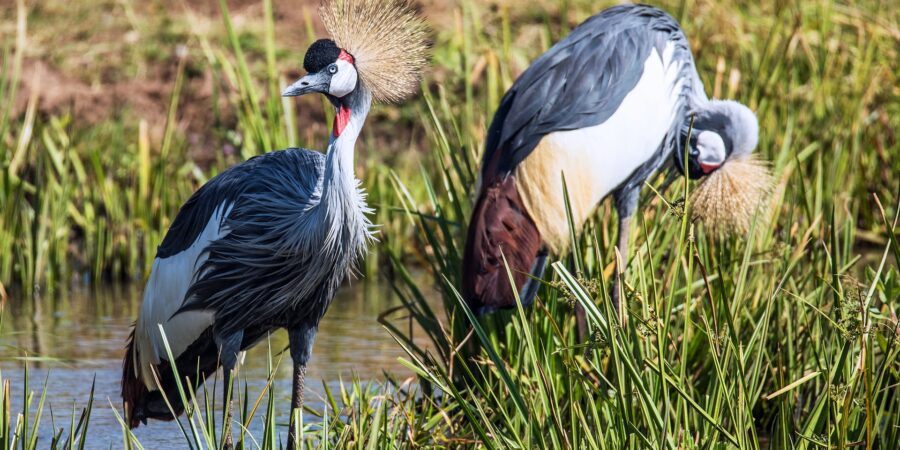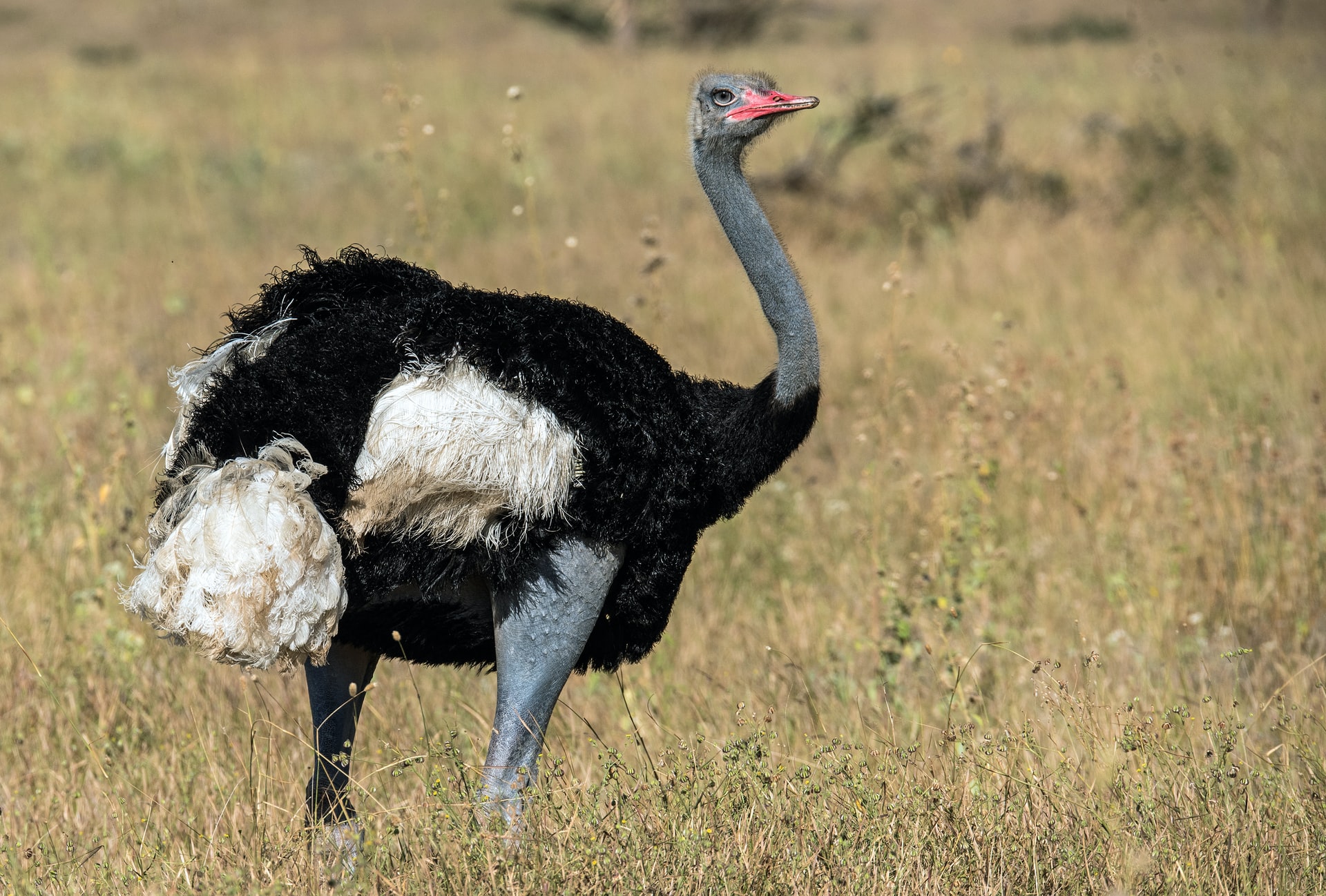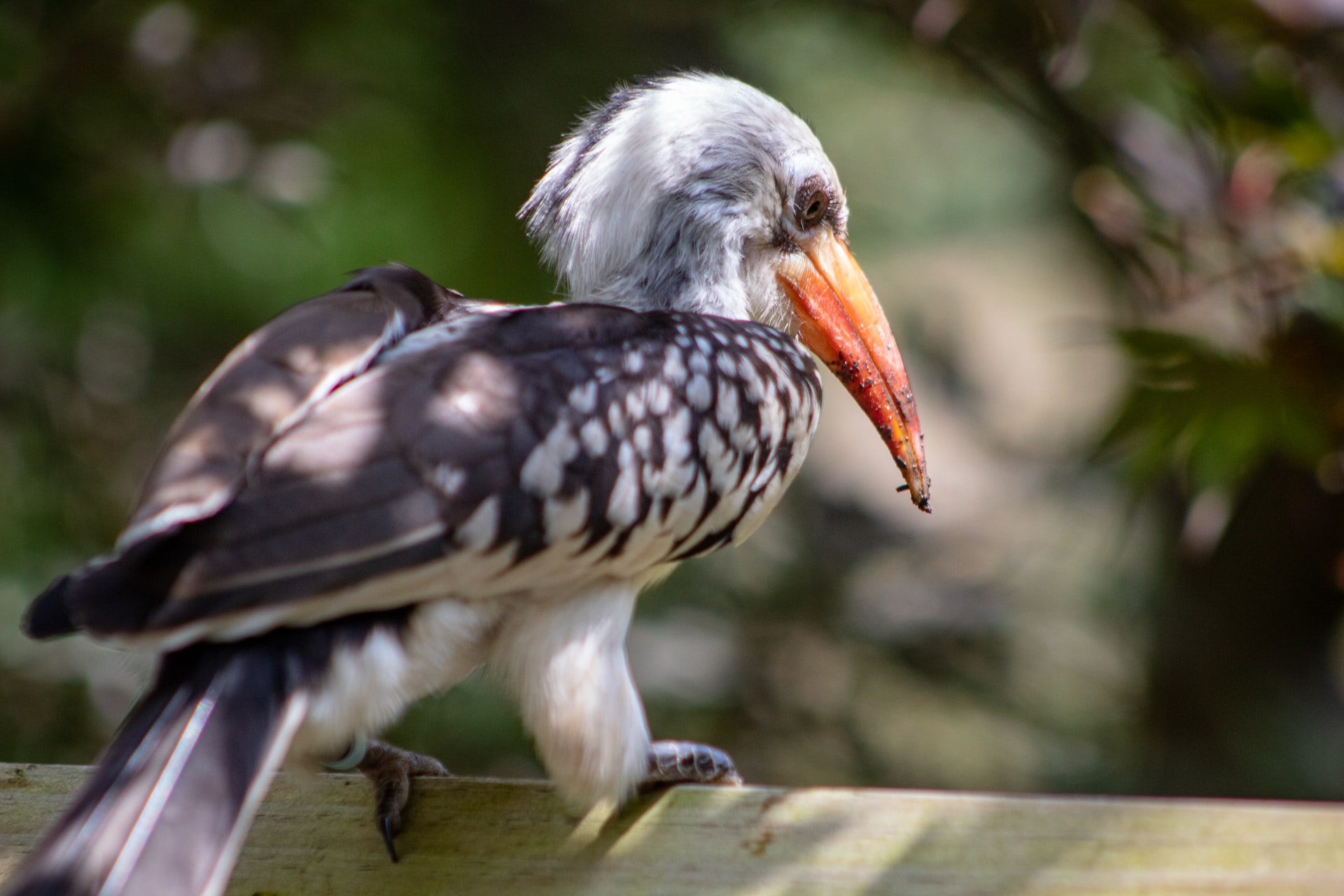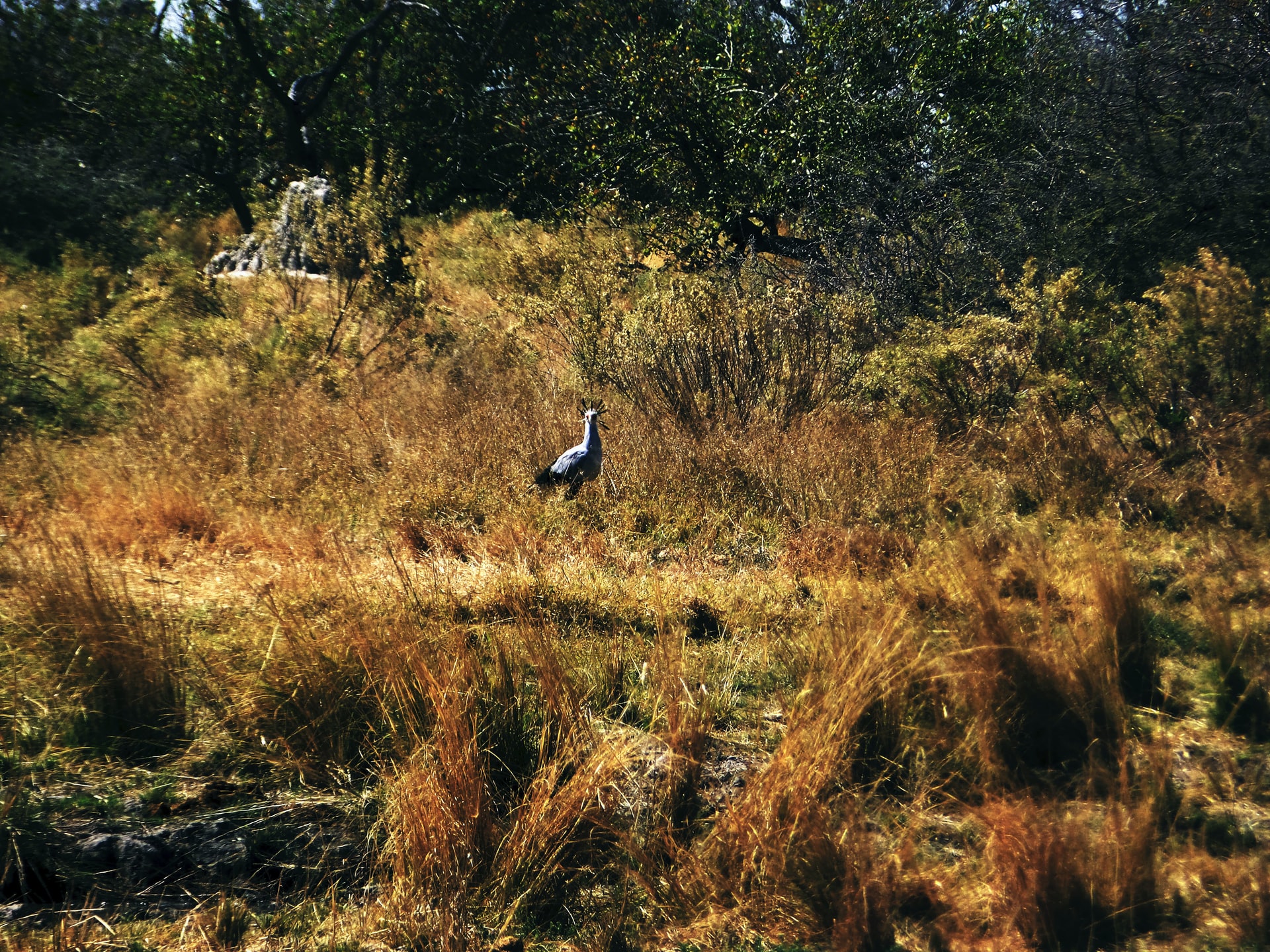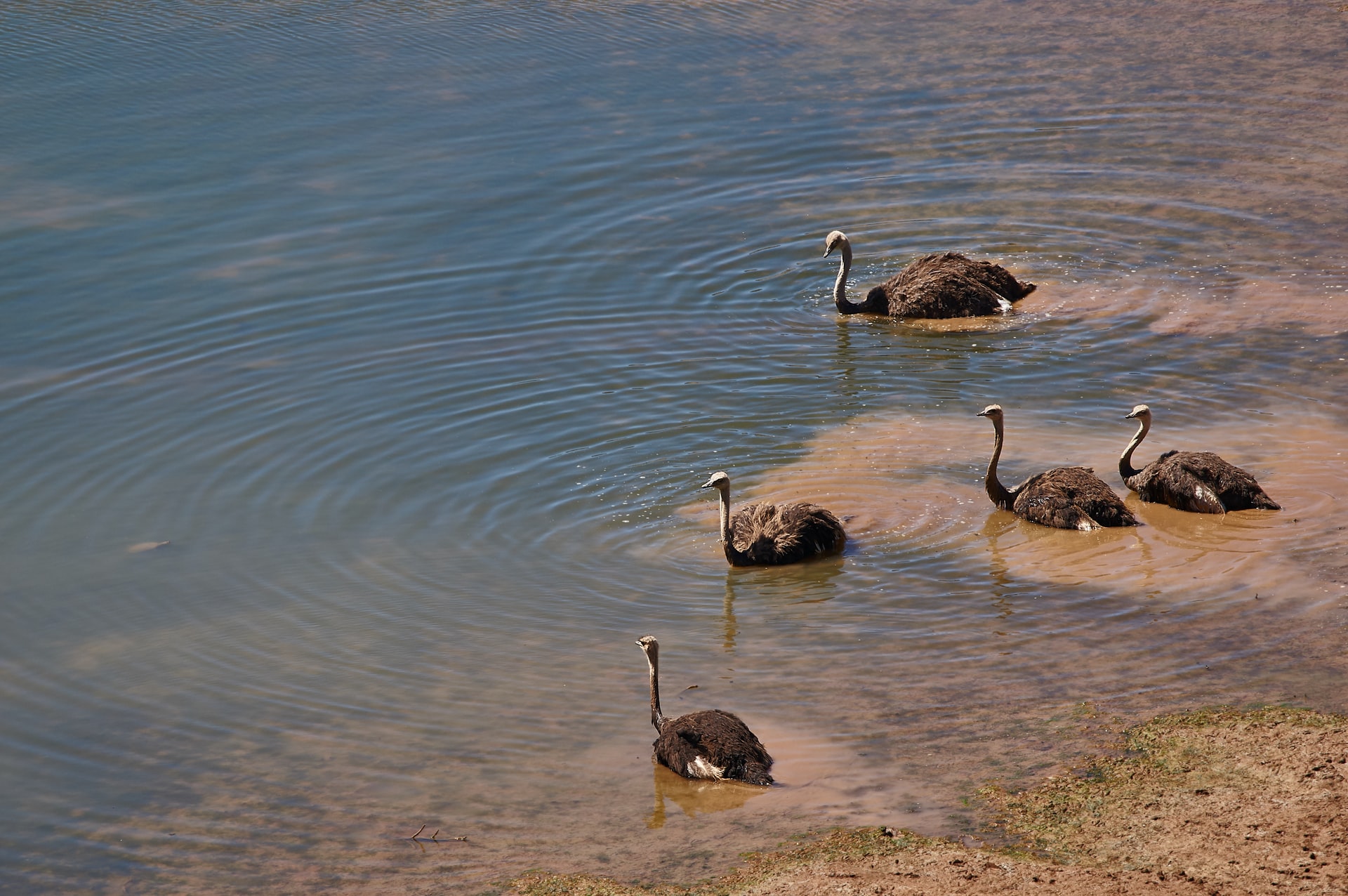Owners of birds should be aware of the various illnesses and disorders that can impact their prized possessions. If you see any of these symptoms in your pet bird, it may be sick or exhibiting unusual behavior.
The knowledge of some of the greatest common diseases affecting birds in captivity is critical. The secret to effective treatment of sick pet birds is initial diagnosis. You need to get in touch with an experienced avian veterinarian right away.
Pet African Grey Parrots Are Suffering From Illness:
Many novice bird owners aren’t aware of the signs of bird sickness, and birds are adept at hiding their symptoms when they do exist. In the event that your bird displays any of the above symptoms, you should make an appointment with your veterinarian as quickly as possible.
In order to save your pet from a life-threatening illness, you need to be on the lookout for certain telltale indicators.
Symptoms Of Illness:
Birds have a high level of emotional sensitivity and cognitive ability. They also have a tendency to get set in their ways.
The sooner you consult with your veterinarian if you feel something is wrong with your parrot, the better. Pay attention to what they do on a regular basis, as well as how they act and how they feel.
As a bird owner, you should be aware of several frequent signs.
Droppings Of Birds:
Monitoring your bird’s discharge isn’t the most pleasurable activity, but it can show you if something is wrong. Even though the color of your bird’s feces can vary slightly based on what you feed it, this is not a health concern.
Keep an eye out for droppings that are rusty brown, yellow, or tarry black for signs of a vermin infestation. These symptoms could indicate internal bleeding or other significant issues.
They can cause issues for your pet if they’re overly runny or stiff. Any significant shifts in the consistency of your bird’s excrement should be noted.
Cere Or Eyes Red, Inflamed, Or Runny:
If you look closely, the cere is the small area above the beak that contains your bird’s nostrils. Keep a watchful eye on the cere of your bird.
If you’re taking your bird to the vet, be sure to keep it warm by wrapping it in a blanket.
There’s a significant probability your pet is really unwell if you see any redness, inflammation, or discharge.
The same is true if your bird’s eyes appear clouded or if a discharge emanates from their sockets. A respiratory, neurological, or muscular problem may be plaguing the bird.
Having Feathers That Are Ruffled May Help You Lose Weight.
Oftentimes, birds who perch with their feathers fluffed out have respiratory or other health issues. This behavior should not be tolerated for more than a few days without consulting with your veterinarian.
Weight loss in a bird can be life-threatening if it is hidden by ruffled feathers. Weigh your pet bird on a regular basis to see if it’s losing or gaining weight. In addition to reducing a bird’s strength, losing weight can also hinder organ functions. This can be disastrous for a bird’s health.
Breathing With Your Mouth Open:
Respiratory illnesses are among the most frequent and, regrettably, the most dangerous of all bird diseases. Your bird may be suffering from a respiratory infection if you see it breathe with its mouth open while it’s sleeping. It’s not just sick; it’s been that way for a while.
A trip to the veterinarian is required immediately, and you may be admitted to the hospital.
Reduced Eating Cravings:
Because birds have such a fast metabolism, it’s critical to provide them with appropriate nutrients on a daily basis. Keep your bird’s cage clean by cleaning out the bottom each day before you feed it.
Intestinal blockage or impaction might cause your bird to stop eating and begin to lose weight. If that’s the case, it’ll likely die fast if left untreated. This makes it simple to keep tabs on things like food consumption and feces.
Doing the Backwards-Tail-Bobbing:
A persistent, repetitive bob of the tail may be an indication of respiratory infection in birds, as can many other symptoms. By expanding their lungs for air intake, the muscles at the base of the tail aid in avian breathing.
As opposed to humans, birds don’t have a diaphragm to divide their chest cavity from their stomach. If you see your bird’s tail bobbing late in the course of an illness, contact your veterinarian right once. Tail muscles work harder when a bird is struggling to breathe, causing the tail to bounce up and down.
Feathers That Have Been Dumped:
Birds are naturally sanitary creatures who bathe frequently and preen their feathers on a daily basis. Inspect the bird’s food intake and droppings for a few days, note any changes, and tell your vet. The messiness or sticking together of the feathers on your bird’s face or rump could be an indication that your pet bird is unwell.
Vocalization Changes:
Birds who aren’t feeling well, like people, tend to be less communicative. Keep a close eye on your bird’s behavior for hints about how it feels. Take note of the usual vocalization patterns of your bird by paying close attention to them. If the frequency or overall tone of your bird’s vocalizations changes, please let us know. Over the next several days, keep an eye out for any new symptoms.
Prevention And Treatment:
When it comes to the health of your pet bird, prevention is far preferable to cure. Birds’ immune systems are extremely sensitive, and even a little sickness can quickly escalate into a life-threatening situation. An ill bird’s life can be saved if it is detected early enough.
Keep a close relationship with your veterinarian and check on your bird frequently for indications of infection. Providing your bird with a variety of food will ensure it receives the proper amount of vitamins and minerals. If you’re unsure about what foods are best for your dog, talk to your veterinarian.
To improve your bird’s mental health, provide it with toys and an exercise schedule that it can stick to. By conversing with your bird, you are providing it with the social interaction it needs. Maintain the cleanliness of your bird’s enclosure at all times.
Keep an eye on your pet’s behavior to make sure you have it for a long time. Your parrot’s well-being is entirely dependant on your efforts.
